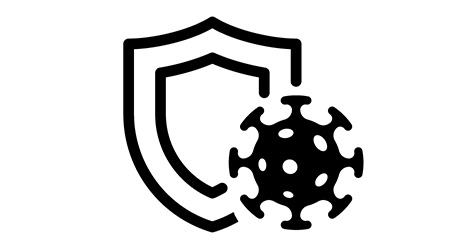
Cleaning staffs and building service contractors (BSCs) responsible for infection control procedures have been under an unprecedented amount of stress in the past year and a half. Aside from the COVID-19 pandemic itself, the threat of antimicrobial resistance in other harmful pathogens is ongoing struggle — especially in healthcare and hospitality-based facilities.
To help combat the issue, the Centers for Disease Control and Prevention (CDC) announced last week that it has awarded $22 million to nearly 30 organizations around the world to combat antimicrobial resistance (AR) and other healthcare threats through the establishment of two new networks—the Global Action in Healthcare Network (GAIHN) and the Global AR Laboratory and Response Network (Global AR Lab & Response Network).
These two new networks, paired with additional short-term research projects, will span more than 50 countries worldwide and build programs that focus on preventing infections in health care through proven infection control; build laboratory capacity to detect antimicrobial-resistant organisms in healthcare, the community, and environment; and develop new and innovative ways to more rapidly detect and respond to threats like AR and COVID-19.
This work builds on successful U.S. efforts launched through CDC’s AR Solutions Initiative since 2016 and will complement ongoing, effective global work underway by CDC and public health partners worldwide. These networks and research projects will tackle threats covered in CDC’s Antibiotic Resistance Threats in the United States, 2019 and other healthcare-associated infections.
“Antimicrobial resistance is not going away and new AR threats will continue to emerge. CDC’s domestic AR Lab Network is an established model for detecting emerging antimicrobial resistance threats. Today, these new investments will build on this model and span much of the globe, leveraging proven expertise to fill critical gaps and inform data-driven responses before threats can spread in communities, across borders, or around the world,” says Denise Cardo, MD, Director of CDC’s Division of Healthcare Quality Promotion. “We also know that evidence-based prevention in health care stops AR threats and other infectious diseases. These new programs will fill infection control gaps to keep patients safe and contain threats immediately when they do inevitably emerge.”
These 28 institutions selected for funding received these awards through a competitive selection process based on scientific needs and funds available.
In addition to these networks, CDC has also invested in short-term global AR innovation research projects, working with investigators to identify new public health solutions to prevent antimicrobial-resistant infections and their spread. Findings from the global AR innovation projects may later be integrated into the Global AR Lab & Response Network to transform the way the world responds to AR across the One Health spectrum.
CDC’s vision for the Global Action in Healthcare Network (GAIHN) is to create a global collaborative network of countries, institutions, and partners at global, regional, national, and subnational levels that will address and reduce priority emerging infections in healthcare settings. GAIHN will do so through detection and response, including infection prevention and control. Health care can often be an epicenter of infectious disease outbreaks that can spread within and beyond the facility into the community. Partners will reduce healthcare-associated infections, deliver safer health care, ensure that facilities and countries are better prepared to respond to emerging threats in health care, and control and prevent outbreaks and emergencies—such as AR and COVID-19—in healthcare facilities and affected communities including AR and COVID-19.
CDC’s Global AR Lab & Response Network will improve the detection of emerging AR threats and identify risk factors that drive the emergence and spread of AR across health care, the community, and the environment (the One Health spectrum). This new network will build on successes of its sister program, the U.S. AR Lab Network, which was established in 2016. It will target emerging and existing AR threats, such as healthcare pathogens, drug-resistant enteric pathogens, fungal pathogens, invasive bacterial and respiratory pathogens and more. The Global AR Lab & Response Network will also collaborate with GAIHN in growing laboratory expertise and detecting AR threats in health care.
For tips on how to target hospital-acquired infections, click here.

 The Down and Dirty on Cleaning in Virus Season
The Down and Dirty on Cleaning in Virus Season How Surfactant Use is Expanding in Commercial Cleaning
How Surfactant Use is Expanding in Commercial Cleaning Clean Buildings Conference
Clean Buildings Conference